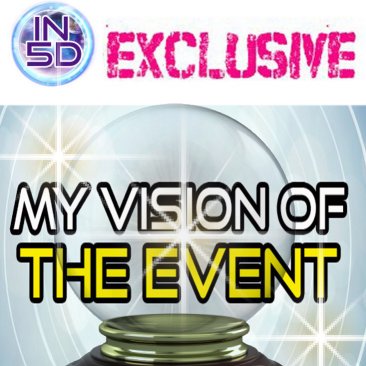Top 10 Introvert Myths
by Carl King
I wrote this list in late-2008. Around that time, I was lucky enough to discover a book called, The Introvert Advantage (How To Thrive in an Extrovert World), by Marti Laney, Psy.D.. It felt like someone had written an encyclopedia entry on a rare race of people to which I belong. Not only had it explained many of my eccentricities, it helped me to redefine my entire life in a new and productive context.
Sure, anyone who knows me would say, “Duh! Why did it take you so long to realize you’re an Introvert?” It’s not that simple. The problem is that labeling someone as an Introvert is a very shallow assessment, full of common misconceptions. It’s more complex than that.
A section of Laney’s book (page 71 through page 75) maps out the human brain and explains how neuro-transmitters follow different dominant paths in the nervous systems of Introverts and Extroverts. If the science behind the book is correct, it turns out that Introverts are people who are over-sensitive to Dopamine, so too much external stimulation overdoses and exhausts them. Conversely, Extroverts can’t get enough Dopamine, and they require Adrenaline for their brains to create it. Extroverts also have a shorter pathway and less blood-flow to the brain. The messages of an Extrovert’s nervous system mostly bypass the Broca’s area in the frontal lobe, which is where a large portion of contemplation takes place.
Unfortunately, according to the book, only about 25% of people are Introverts. There are even fewer that are as extreme as I am. This leads to a lot of misunderstandings, since society doesn’t have very much experience with my people. (I love being able to say that.)
So here are a few common misconceptions about Introverts (not taken directly from the book, but based on my own life experience):
Myth #1 – Introverts don’t like to talk.
This is not true. Introverts just don’t talk unless they have something to say. They hate small talk. Get an introvert talking about something they are interested in, and they won’t shut up for days.
Myth #2 – Introverts are shy.
Shyness has nothing to do with being an Introvert. Introverts are not necessarily afraid of people. What they need is a reason to interact. They don’t interact for the sake of interacting. If you want to talk to an Introvert, just start talking. Don’t worry about being polite.
Myth #3 – Introverts are rude.
Introverts often don’t see a reason for beating around the bush with social pleasantries. They want everyone to just be real and honest. Unfortunately, this is not acceptable in most settings, so Introverts can feel a lot of pressure to fit in, which they find exhausting.
Myth #4 – Introverts don’t like people.
On the contrary, Introverts intensely value the few friends they have. They can count their close friends on one hand. If you are lucky enough for an introvert to consider you a friend, you probably have a loyal ally for life. Once you have earned their respect as being a person of substance, you’re in.
Myth #5 – Introverts don’t like to go out in public.
Nonsense. Introverts just don’t like to go out in public FOR AS LONG. They also like to avoid the complications that are involved in public activities. They take in data and experiences very quickly, and as a result, don’t need to be there for long to “get it.” They’re ready to go home, recharge, and process it all. In fact, recharging is absolutely crucial for Introverts.
Myth #6 – Introverts always want to be alone.
Introverts are perfectly comfortable with their own thoughts. They think a lot. They daydream. They like to have problems to work on, puzzles to solve. But they can also get incredibly lonely if they don’t have anyone to share their discoveries with. They crave an authentic and sincere connection with ONE PERSON at a time.
Myth #7 – Introverts are weird.
Introverts are often individualists. They don’t follow the crowd. They’d prefer to be valued for their novel ways of living. They think for themselves and because of that, they often challenge the norm. They don’t make most decisions based on what is popular or trendy.
Myth #8 – Introverts are aloof nerds.
Introverts are people who primarily look inward, paying close attention to their thoughts and emotions. It’s not that they are incapable of paying attention to what is going on around them, it’s just that their inner world is much more stimulating and rewarding to them.
Myth #9 – Introverts don’t know how to relax and have fun.
Introverts typically relax at home or in nature, not in busy public places. Introverts are not thrill seekers and adrenaline junkies. If there is too much talking and noise going on, they shut down. Their brains are too sensitive to the neurotransmitter called Dopamine. Introverts and Extroverts have different dominant neuro-pathways. Just look it up.
Myth #10 – Introverts can fix themselves and become Extroverts.
A world without Introverts would be a world with few scientists, musicians, artists, poets, filmmakers, doctors, mathematicians, writers, and philosophers. That being said, there are still plenty of techniques an Extrovert can learn in order to interact with Introverts. (Yes, I reversed these two terms on purpose to show you how biased our society is.) Introverts cannot “fix themselves” and deserve respect for their natural temperament and contributions to the human race. In fact, one study (Silverman, 1986) showed that the percentage of Introverts increases with IQ.
In5D Addendum
Gregg Prescott, M.S.
Editor, In5D.com
Donate to In5D
With over 6,000+ free articles and 1,200+ free videos, any donation would be greatly appreciated!
Much love for your kind donation,
Gregg
Introverts are often labeled as being loners and recluse, neither of which are true.
There are many famous introverts, including Socrates, Albert Einstein, Rene Descartes, Sir Isaac Newton, Carl Jung, Dan Aykroyd, Dwight D. Eisenhower, J.K. Rowling and Mahatma Gandhi.

Unfortunately, the corporate world thrives on extroverts where extroverts “earn bigger paychecks but do not have better corporate performance; that brainstorming results in lower quality ideas and the more vocally assertive extroverts are the most likely to be heard; that the amount of space allotted to each employee shrunk 60% since the 1970s; and that open office plans are associated with reduced concentration and productivity, impaired memory, higher turnover and increased illness”.
If an introvert were to attend a party or a gala event, chances are, the introvert would be found on the outside edges of the party, observing, listening and watching people.
Although introverts only compromise 25% of the general population, the statistics are seemingly reversed within the spiritual and metaphysical genres. Through my own research, I’ve found that between 70-80%+ of people who are interested in the fields of spirituality and metaphysics are introverts, as we tend to look within for answers versus the need to look to exterior sources.
For MUCH MORE on introverts, check out these articles.
Sending you all infinite LOVE and Light!
Gregg
Click here for more articles by Gregg Prescott!
 Gregg Prescott, M.S., is the founder and editor of In5D and Zentasia. In 2009, Gregg launched In5D after experiencing what he describes as a “galactic download,” which provided him with the name “In5D” and the guidance to create the website. He co-owns In5D Club with his beautiful wife, Ali. His In5D Facebook page has over 370,000 followers, and his In5D YouTube channel has amassed 146,000 followers. Gregg is a visionary, author, a transformational speaker, and promotes spiritual, metaphysical and esoteric conferences in the United States through In5dEvents. Follow Gregg and In5D on various social media platforms, including Rumble, YouTube, Gab, Telegram, In5D Bitchute, Instagram, TikTok, Twitter, and TruthSocial to stay updated on his latest content and events./
Gregg Prescott, M.S., is the founder and editor of In5D and Zentasia. In 2009, Gregg launched In5D after experiencing what he describes as a “galactic download,” which provided him with the name “In5D” and the guidance to create the website. He co-owns In5D Club with his beautiful wife, Ali. His In5D Facebook page has over 370,000 followers, and his In5D YouTube channel has amassed 146,000 followers. Gregg is a visionary, author, a transformational speaker, and promotes spiritual, metaphysical and esoteric conferences in the United States through In5dEvents. Follow Gregg and In5D on various social media platforms, including Rumble, YouTube, Gab, Telegram, In5D Bitchute, Instagram, TikTok, Twitter, and TruthSocial to stay updated on his latest content and events./
Donate Crypto: https://cointr.ee/in5d
Image: Pixabay
In5D PATREON: Click here to help support our work thru Patreon. Your support is greatly appreciated!!!
Follow In5D on Patreon, Rumble, Telegram, Twitter, Bitchute, TikTok, Instagram, Facebook, YouTube, Gab, and Truth Social

























